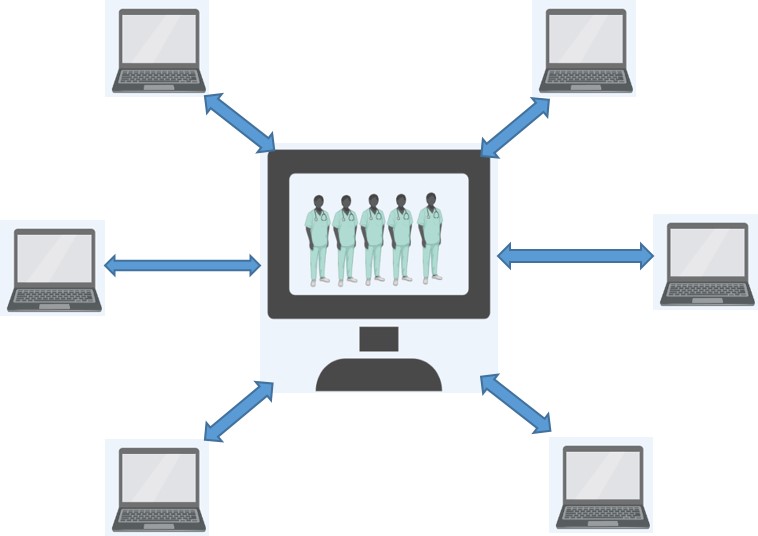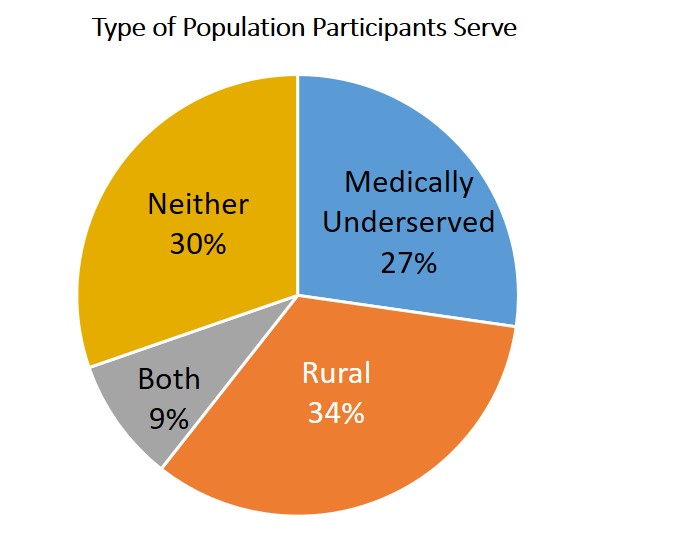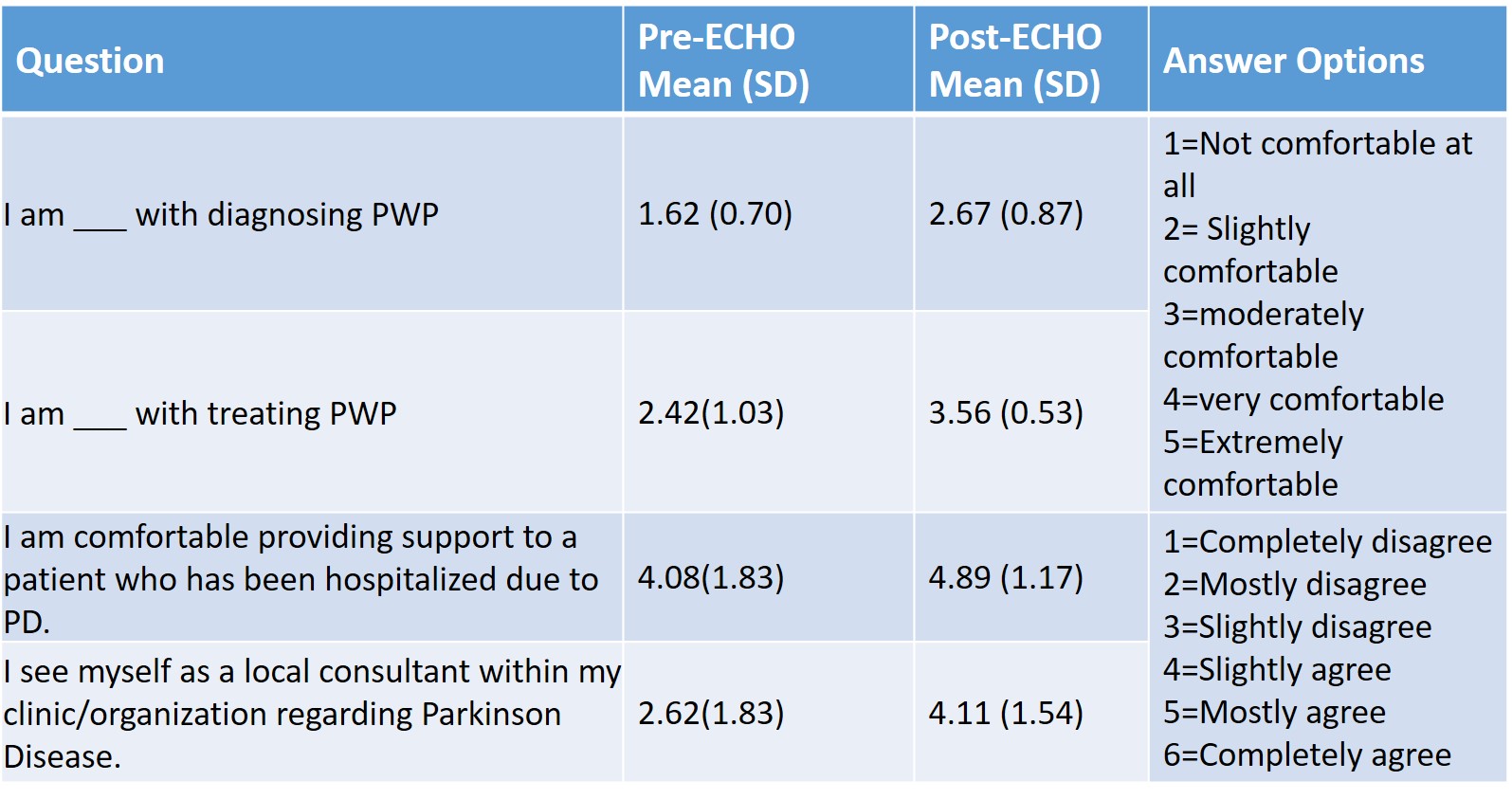Category: Education in Movement Disorders
Objective: To determine if a teleconferencing didactic and case presentation model could build the capacity of clinicians to diagnose and treat PD and its complications
Background: The ECHO framework[1] is an educational intervention designed to transfer specialized knowledge from expert centers to outlying clinicians, thereby increasing access to care. In Oregon, there are 19 movement disorder specialists; 15 are found in the Portland Metro area. Furthermore, general neurologists are only found in 7 of 36 Oregon counties. Little literature exists on applying this model to neurological disease and no published data exist in PD despite its high prevalence and rising incidence.
Method: We recruited 34 primary care providers and other allied health professionals through the Oregon Rural Practice-based Research Network (ORPRN) under an IRB-exempt protocol, with 61% coming from rural or frontier communities. We developed a 6-week program spanning January 2020 to June 2020, with an unplanned hiatus due to the COVID-19 pandemic. Each session consisted of a 20-minute expert-led didactic followed by a real-life case presented by a participant. Each participant was surveyed following each session as a measure of quality control. Each participant also completed a pre- and post-curriculum survey to assess program effectiveness.
Results: We averaged 11 weekly responses, with a noticeable drop-off in survey completion post-COVID. We had 26 participants complete the pre-course evaluation. Of those, 16 completed the post-course evaluation. With respect to weekly questions about meeting objectives, pace, organization, relevance, and opportunity to ask questions, there were consistently high scores with no outliers (4.5 out of 5). Overall, there was an increase in confidence in diagnosis and treatment and a report in direct change in care.
Conclusion: In this pilot study, we were able to successfully recruit rural and frontier providers. While the COVID-19 pandemic did impact attendance for the final two sessions, response to the model of delivery and the content were rated across all sessions between “very good” and “excellent.” Importantly, we saw positive movement in areas of knowledge and confidence. Given the change in educational delivery due to COVID, this model may serve as a useful framework for the future.
References: [1] Arora, S.; Geppert, C.M.; Kalishman, S.; Dion, D.; Pullara, F.; Bjeletich, B.; Simpson, G.; Alverson, D.C.; Moore, L.B.; Kuhl, D., et al. Academic health center management of chronic diseases through knowledge networks: Project ECHO. Acad Med 2007, 82, 154-160.
To cite this abstract in AMA style:
L. Neilson, J. Wilhelm, L. Mann, R. Cooper, J. Kraakevik. Implementing Extension of Community Healthcare Outcomes (ECHO) framework to educate geographically underserved populations in complex Parkinson disease management [abstract]. Mov Disord. 2021; 36 (suppl 1). https://www.mdsabstracts.org/abstract/implementing-extension-of-community-healthcare-outcomes-echo-framework-to-educate-geographically-underserved-populations-in-complex-parkinson-disease-management/. Accessed February 6, 2026.« Back to MDS Virtual Congress 2021
MDS Abstracts - https://www.mdsabstracts.org/abstract/implementing-extension-of-community-healthcare-outcomes-echo-framework-to-educate-geographically-underserved-populations-in-complex-parkinson-disease-management/



